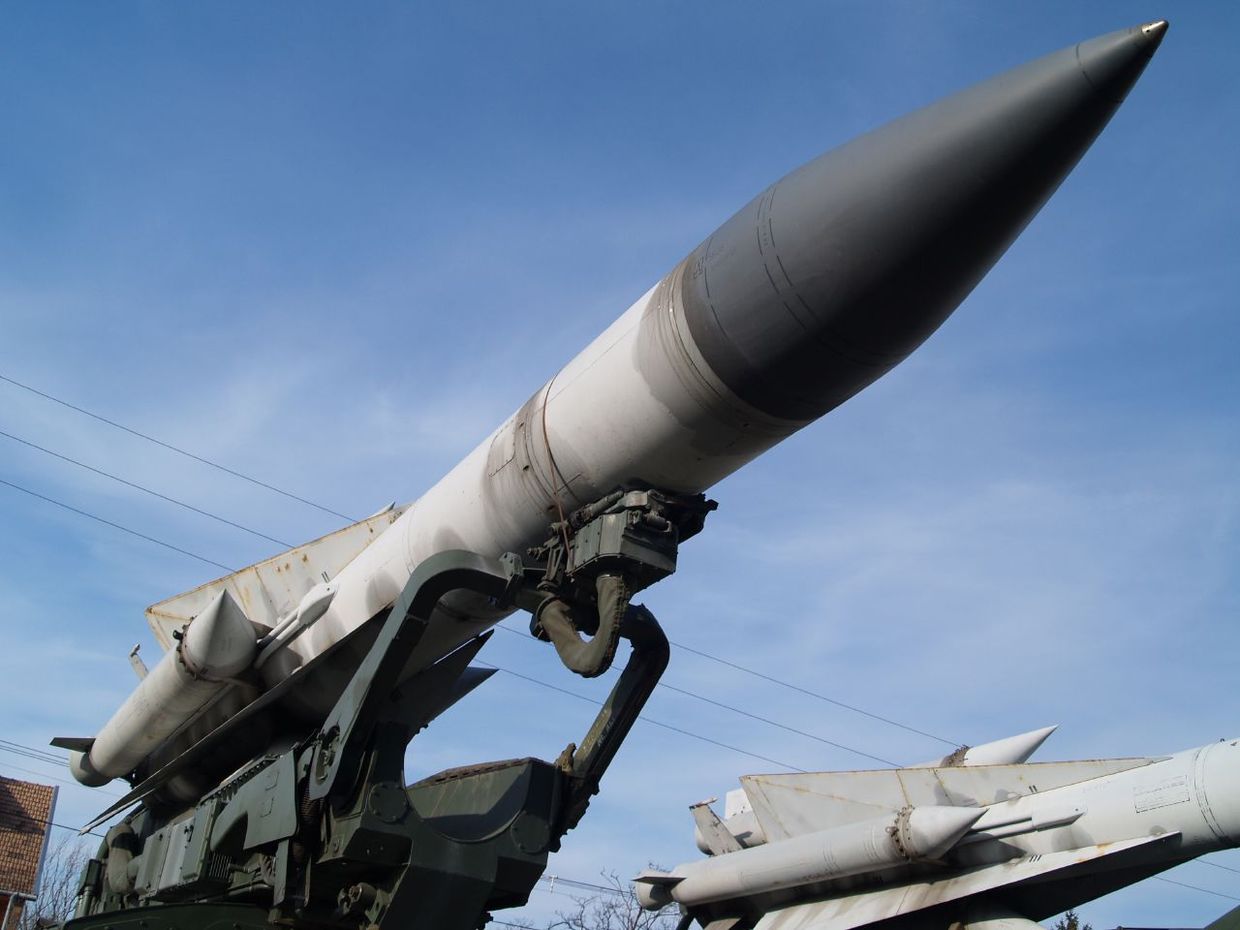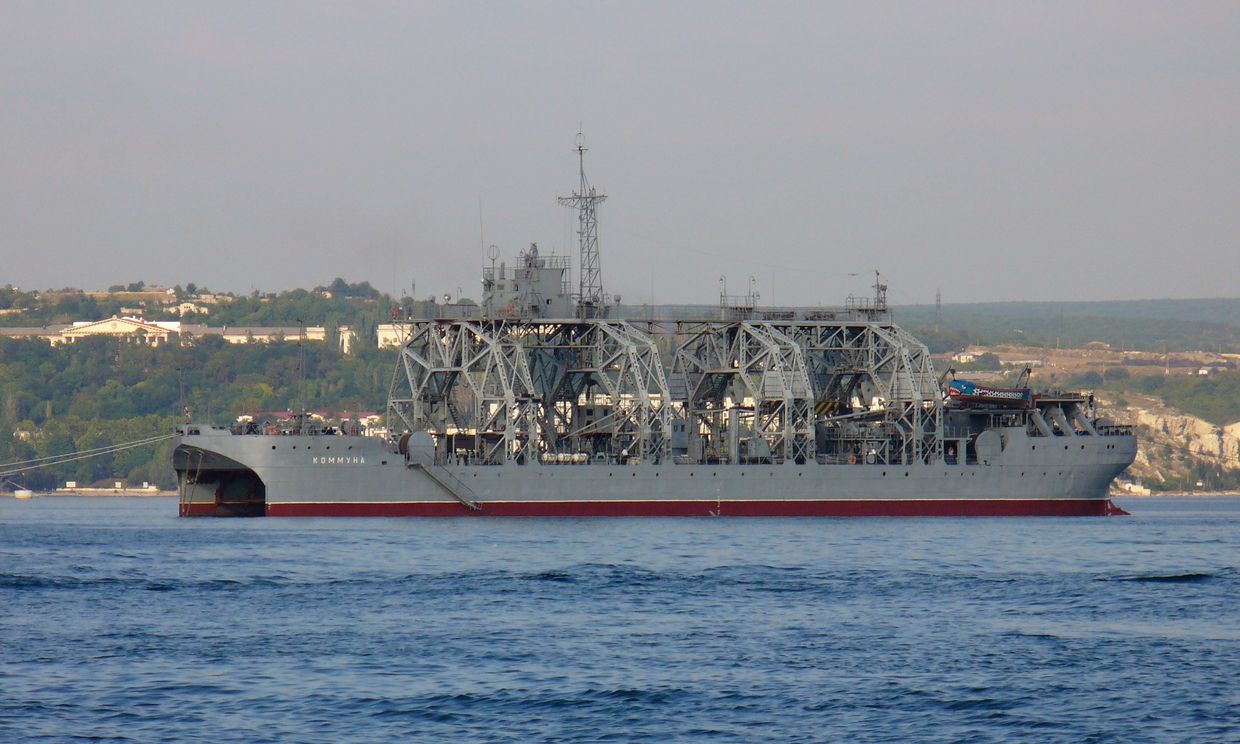Key developments on April 20-21:
- US House passes $61 billion in aid to Ukraine; Zelensky praises US House for passing it
- Senator says US could start sending ATACMS to Kyiv in 1 week
- Ukraine's Navy confirms Russian ship Kommuna hit in Sevastopol
- Ukrainian drones strike Russian energy facilities overnight, source says
- Russian missile attack on Odesa injures 8, including 2 children
- Zelensky says Ukraine could sign bilateral security agreements with the US, Nordic, and Baltic states in near future
After months of political infighting and a deteriorating situation on the battlefield in Ukraine, the U.S. House of Representatives finally passed a key foreign aid package for Ukraine, Israel, and other allies on April 20.
The aid package provides $60.84 billion in assistance for Ukraine, including $13.8 billion for Ukraine to buy advanced weapons, $13.4 billion for replenishing U.S. stockpiles, $11 billion to support U.S. allies in the region, and another $13.8 billion to purchase U.S. defense systems for Ukraine.
Another $9 billion is allocated as economic assistance in the form of loans that can be forgiven by the president with Congress's approval.
The U.S. House of Representatives decision comes over two months after the Senate passed a similar bill on foreign assistance. Democratic and Republican lawmakers, along with U.S. President Joe Biden, have been calling on House Speaker Mike Johnson to bring the bill to the House for a vote.
The Senate is set to begin considering the House-passed bill on April 23 before it will be sent to President Biden for signing. Biden has already signaled that he would sign the bills once Congress passes them.
U.S. Senator Mark Warner on April 21 told CBS News that the U.S. could begin transferring long-range Army Tactical Missile Systems (ATACMS) to Ukraine "by the end of the week," pending White House approval of the military aid package.
"I hope once the President signs ... making sure Congress does its job that these materials will be in transit by the end of the week," Warner said.
Soon after the foreign aid package was passed, President Volodymyr Zelensky praised the U.S. House of Representatives for approving it.
"We appreciate every manifestation of support for our state and our independence, our people and our lives, which Russia wants to bury in ruins," Zelensky said in his evening address on April 20.
"Certainly, we will use American support to strengthen both our nations and bring a just end to this war — a war that (Russian President Vladimir) Putin must lose."
He added that the U.S. had "showed its leadership from the first days of the war."
"This kind of American leadership is vital to the preservation of an international order based on rules and predictability of life for all peoples."
Ukraine had repeatedly called on the U.S. to pass the much-needed aid amid dwindling air defenses and ammunition on the battlefield. A recent increase in devastating Russian attacks on critical infrastructure has highlighted Ukraine's growing need for assistance.

Earlier on the same day, Zelensky said that Ukraine may also sign a bilateral security agreement with the U.S. in the near future, adding that it could happen after Congress passes aid for Ukraine.
The agreements are based on a pledge made by the Group of Seven (G7) last July, which aims to bolster Ukraine's ability to resist Russian aggression. So far, nine have been signed with Latvia, Finland, the U.K., Germany, France, Denmark, Canada, Italy, and the Netherlands.
"I want people to understand that these (bilateral agreements) are not only about military assistance," Zelensky said. "This is also about humanitarian aid, reconstruction, the financial and energy sectors' support."

Ukraine’s attacks on Russian ship, energy facilities
Ukraine hit another Russian ship in occupied Sevastopol, Dmytro Pletenchuk, a spokesperson for Ukraine's Navy, told the Liga.net media outlet on April 21.
Pletenchuk also confirmed that it was the Kommuna, a salvage ship that was launched in 1915 and is the oldest ship still in service in the Russian Navy.
Earlier in the day, the Russian proxy official Mikhail Razvozhayev claimed an anti-ship missile had been "repelled" in occupied Sevastopol and that "fragments caused a small fire, which was quickly extinguished."
A video posted to social media appeared to show a Russian naval vessel on fire, and local media reported the Crimea bridge had been closed. However, the extent of the damage to the ship is yet unclear.

Sevastopol is home to Russia’s Black Sea Fleet and is frequently targeted by Ukrainian missile and sea drone strikes.
Apart from that, an intelligence source told the Kyiv Independent that Ukrainian special services, together with the military, orchestrated a large-scale drone attack on Russia's energy infrastructure overnight on April 20.
According to the country's defense ministry, Russian air defense shot down 50 Ukrainian drones over eight regions, including Belgorod, Kursk, Moscow, Tula, Ryazan, Bryansk, Kaluga, and Smolensk oblasts.
A fire broke out at three separate energy facilities in the latter three regions, local authorities claimed. Drone debris also reportedly started a fire at a fuel storage tank in Smolensk Oblast.
The attack was a joint operation of Security Service of Ukraine (SBU), Military intelligence agency (HUR), and the Special Operations Forces (SOF), the source said.
The drones reportedly targeted the energy infrastructure that powers the Russian military-industrial complex, causing problems with electricity and water supply in some areas.
"The SBU drones successfully attacked the infrastructure that ensures the continuous operation of military facilities in Russia," a military intelligence source told the Kyiv Independent.

Russian missile attack on Odesa injures 8
Russian troops on April 20 launched another missile attack against Odesa, wounding eight people, including two children.
The attack hit a residential area in the city, causing fires and destroying several houses, from one of which a woman and a child were rescued, Odesa Oblast Governor Oleh Kiper wrote on Telegram.
Ukraine’s southern regions, such as Odesa, are frequent targets of Russian attacks, damaging civilian infrastructure and causing multiple casualties among civilians.
Kiper reported on April 21 that Russian troops hit Odesa Oblast with a ballistic missile, injuring four people.
The attack hit a transport and logistics facility of one of the ports, also damaging private houses and causing fire.
"Rescuers and utility services continue to eliminate the consequences of the attack," Kiper said following the attack.














